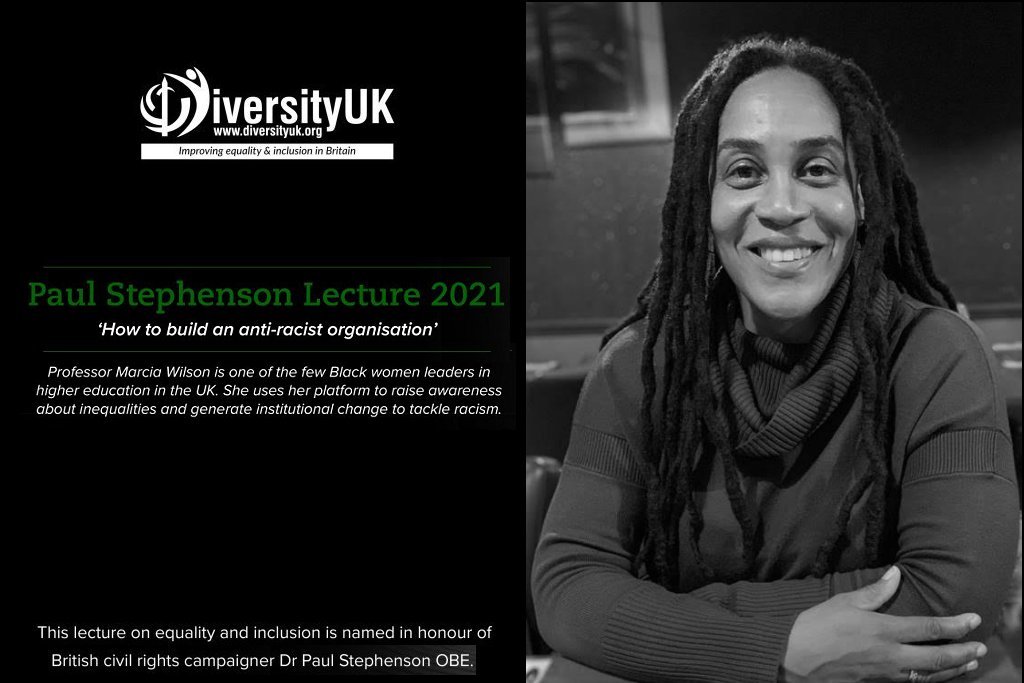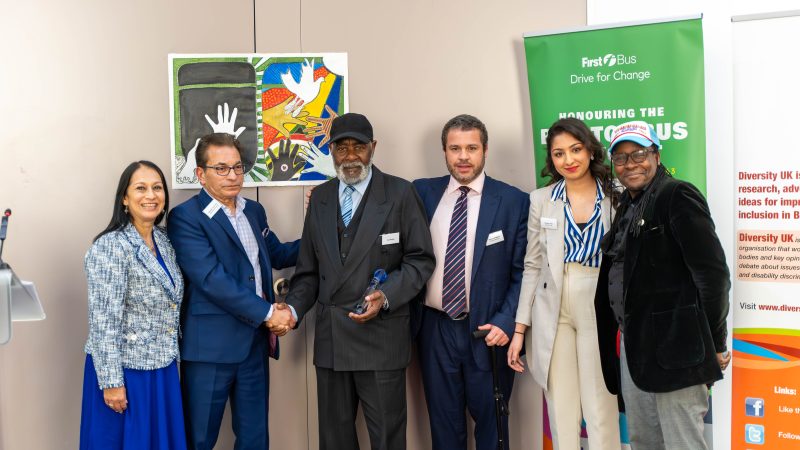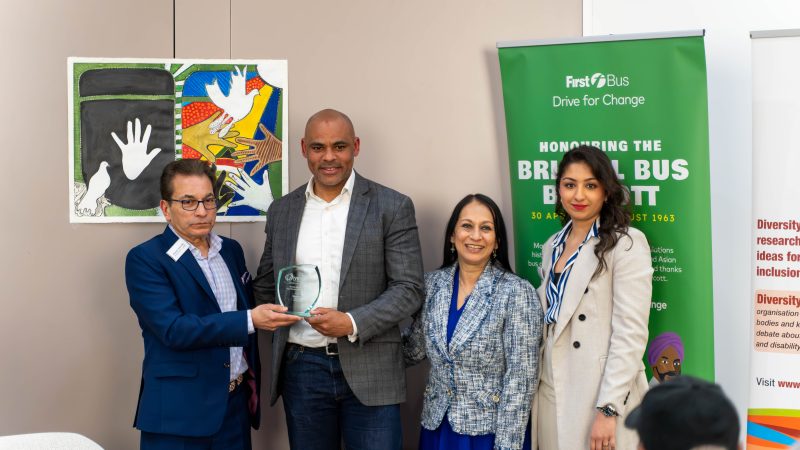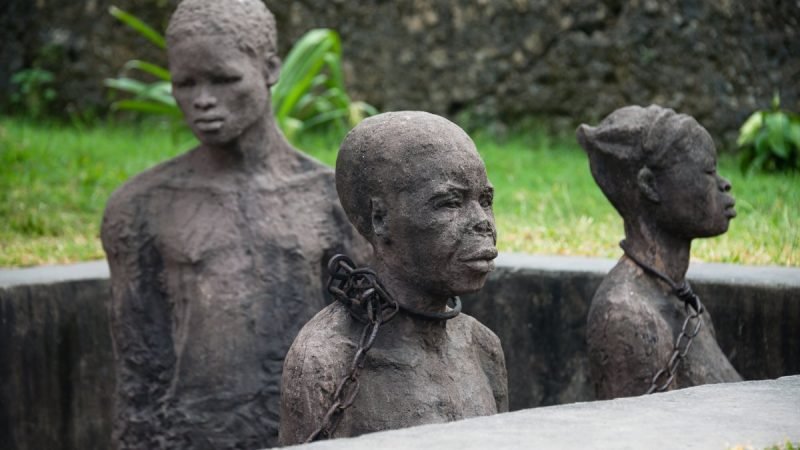Leading academic gives the Paul Stephenson Lecture 2021

Leading academic Professor Marcia Wilson gave the Diversity UK Paul Stephenson Lecture on 25th November 2021, sharing her expertise on ‘How to Build an Anti-Racist Organisation’. The lecture on equality and inclusion is eponymous with Dr Paul Stephenson, the British, Bristol-based civil rights campaigner whose actions paved the way for the Race Relations Act 1965. Over the past few years, the lecture has been given by leading race campaigners from Lord Simon Woolley to Dr Patrick Vernon OBE who last year made a renewed plea that “race equality is on the agenda today and we have to ensure that it is on the agenda tomorrow so that the next generation do not have the same burden, trauma, stress on their health and wellbeing that previous generations have suffered.”
Being a non-racist organisation is no longer enough
During this year’s lecture, Professor Wilson said that being a non-racist organisation was no longer enough, stating that organisations had to actively become anti-racist, “the COVID-19 pandemic and recent Black Lives Matter protests have shown that it is no longer enough to have equality, diversity and inclusion policies - organisations have to actively work on being anti-racist and on measuring the outcomes of their anti-racism initiatives.”
She outlined her own experiences of working in the higher education sector and the learnings from development of an equality, diversity & inclusion (ED&I) plan for the Open University where she currently works as the Dean of Equality, Diversity and Inclusion. She shared some current, startling facts about diversity in higher education institutions, where:
- There is only 1 black Vice Chancellor of a UK higher education institution (HEI)
- The first black Chancellor to head up an HEI institution in the UK was only appointed in 2015;
- Over the last 18 years the number of BAME staff has doubled to 15.4%, but black staff make up only 2.8% of staff (compared to 3.3% of the UK Population);
- Black, Asian and Minority Ethnic (BAME) staff are also more likely to be on fixed term contracts and more often found in the night-time economy;
- Fewer than 5% of senior management in HEIs are BAME (black, Asian and minority ethnic);
- Of the 23,000 professors in the UK, fewer than 45 are black women.
How to build an anti-racist organisation
She highlighted some of the gaps across the higher education sector, including;
- Poorer student outcomes with a persistent degree awarding gap between BAME students and White students.
- Although the degree awarding gap is 13.3% across the sector, disaggregating the data shows the greatest disparity is between black and white students, where the gap is just under 20%, leading to unequal outcomes.
She suggested five tips for addressing the greatest disparities.
- Demonstrate strong, focussed vision, vocal leadership and a zero tolerance policy towards racism across all levels of the institution.
- Review of policies, particularly HR policies in relation to recruitment and selection, promotion, annual performance appraisals etc.
- Develop a data-driven anti-racism action plan based on your core values. Use disaggregated data and an intersectional lens on the data.
- Evaluation of progress against impact accompanied by regular monitoring.
- Create staff networks and an allyship forum. Decide with intent that this is the way forward for your organisation.
Union Black series on Future Learn
“But ending racial inequality will take a collective effort to change the culture of institutions” she said, “it helps to teach black history in schools and celebrate the contribution of black communities in all spheres of life, empowering all with a shared sense of identity and belonging.” But how do you deliver accessible Black British history curricula effectively? From the creation of guidance, resources and training to empower teachers to teach new and existing topics confidently to creating an equity framework for the whole organisation takes significant effort, imagination and collaboration. Professor Wilson has achieved much of that through the creation of the Union Black learning series, currently available to HEIs on the Future Learn platform.
The programme has been developed by leading academics including Professor Wilson and includes contributions from BAFTA-award-winning film-maker David Olusoga, Shadow Secretary of State for Justice David Lammy MP, human rights activist Baroness Shami Chakrabarti, artistic director of The Young Vic Kwame Kwei-Armah, and former England goalkeeper David James MBE, among many others. The course has also been guided by a steering committee including Baroness Valerie Amos and Karen Blackett OBE. The presenter of the course is TV host and former Blue Peter presenter Ayo Akinwolere.
Professor Wilson, Dean of Equality, Diversity and Inclusion at The Open University said: “We are so proud to have created Union Black in partnership with Santander Universities and FutureLearn. Discussing your cultural traditions, whatever your background, is an accessible and engaging way to start a conversation around racism and what it means to you – and we hope this course encourages that behaviour. Giving free access to education and training to students and staff is important if we want to bring about real change in institutions across the UK.”
Hosted on FutureLearn, the six-hour course will be freely available to all staff and students at UK universities over the next three years, making it the first programme of its kind to potentially reach over four million students across the UK.
About Professor Marcia Wilson
Professor Marcia Wilson works at the Open University (OU) as the Dean of Equality, Diversity and Inclusion. Prior to the OU, Marcia worked at the University of East London for 12 years where she established the UK’s first Office for Institutional Equity (OIE) and held the position of Dean. Her work includes equality projects with Universities UK and London Higher to tackle racism in higher education institutes.
Marcia has a PhD in Sport Psychology from the University of Iowa. She has held various roles throughout her career including Head of the School of Health, Sport and Bioscience and Head of the Sport Science department at UEL. She spent 10 years studying and working in the USA. She has also worked for eight years in sport psychology at the Football Association with the women’s national team (U15s, U17s and seniors) and has also worked in Rugby Union with elite women’s teams and coaches.
Marcia is a Trustee for a Multi-Academy Trust in East London and sits on the Council of Deans of Health’s Anti-Racism Advisory Board.
About the Diversity UK Paul Stephenson lecture
Diversity UK inaugurated the first Paul Stephenson lecture, given by Helen Grant MP, in November 2016 at the Speaker’s House, House of Commons, in London. Helen spoke about race and diversity in a post-Brexit Britain. Paul spoke about his own upbringing and the boycott of the Bristol Omnibus Company that he led in 1963, protesting against its refusal to employ Black or Asian drivers or conductors. After a 60-day boycott supported by thousands of Bristolians, the company revoked its colour bar in August of that year. Although now in frail health, Paul took the time to sign copies of his ‘Memoirs of a Black Englishman’ for the 100 attendees.
In 2017, the Paul Stephenson Lecture was given by two diversity pioneers; Lord Simon Woolley, who spoke about his work on race equality and inclusion at Operation Black Vote (OBV) and Wilfred Emmanuel-Jones, who talked about his career and championship of inclusive entrepreneurship, particularly in rural communities. The year 2018 marked 100 years since women got the right to vote in parliamentary elections in the UK and the lecture was given by two women pioneers; Tangy Morgan, a Senior Advisor to the Bank of England Prudential Regulation Authority (PRA) and Elaine Sihera, writer, sociologist, Cambridge postgraduate, Open University doctor and a leading achiever in the British Black community.
The 2019 lecture, which noted the 50th anniversary of the Apollo 11 moon landings, was given by cybersecurity entrepreneur and education philanthropist Tom Ilube CBE who spoke about ‘Shooting for the Moon’ and raising aspirations among the young. In 2020, during the lockdown, the lecture moved to a virtual platform with campaigner and cultural historian, Patrick Vernon OBE talking about the unequal way in which COVID-19 has impacted black, Asian and minority ethnic communities and the reincarnation of the black power movement following the murder of George Floyd in the USA. He said that a new generation of campaigners and activists have been reignited by the Black Lives Matter movement and the impact of structural and everyday racism.
About Dr Paul Stephenson OBE
Dr Paul Stephenson OBE, is a community worker, activist and long-time campaigner for civil rights for the British African-Caribbean community in Bristol, England. As a young social worker, in 1963 Stephenson led a boycott of the Bristol Omnibus Company, protesting against its refusal to employ Black or Asian drivers or conductors. After a 60-day boycott supported by thousands of Bristolians, the company revoked its colour bar in August.
In 1964 Stephenson achieved national fame when he refused to leave a public house until he was served, resulting in a trial on a charge of failing to leave a licensed premises. His campaigns were instrumental in paving the way for the first Race Relations Act, in 1965. Paul Stephenson is a Freeman of the City of Bristol and was awarded an OBE in 2009. In July 2014, Mr Stephenson was awarded an honorary degree (Doctor of Law) by the University of Bristol "for his dedication to fighting for equality and civil rights across Bristol and around the world for over 60 years". In November 2016, he was presented with the Diversity UK Lifetime Achievement Award and has its annual lecture named in his honour.




